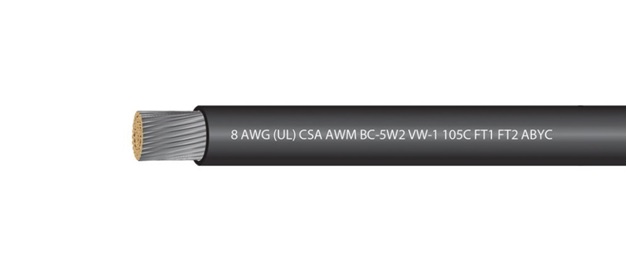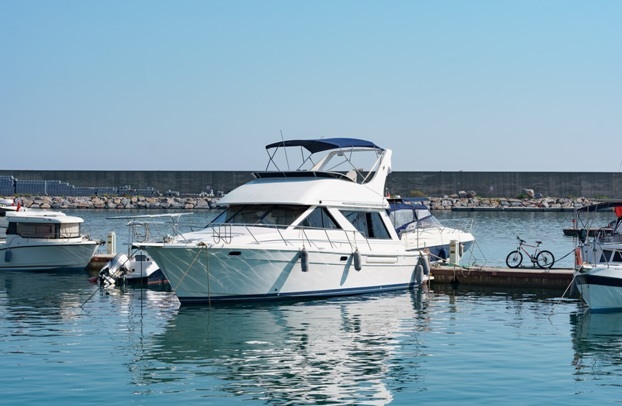Electrical Checkup: Maintaining Your Boat's Wiring System for Safety
15th Apr 2024
Say you're cruising along on a beautiful day, enjoying the open water, when suddenly, the lights flicker and then die. The radio sputters and goes silent. Panic starts to rise as essential instruments like your depth finder and GPS lose power.
This scenario highlights the critical role of your boat's electrical system and the importance of regular maintenance to prevent such situations. Just like your car needs periodic tune-ups, your boat's electrical system benefits greatly from routine inspections and maintenance.
Why Regular Electrical Checkups Matter
A well-maintained marine electrical system offers several key benefits:
- Safety: Faulty wiring or failing components can pose serious safety hazards on a boat. Overheated wires can lead to fires, while electrical shorts can damage equipment and even cause complete system failure. Regular checkups help identify potential issues before they escalate into bigger problems.
- Reliability: Imagine being miles offshore when your navigation system shuts down due to a faulty connection. Regular maintenance ensures your boat's electrical system operates reliably, providing peace of mind and uninterrupted enjoyment on the water.
- Performance: Over time, corrosion can build up on connections, and marine electrical wire can become brittle. These factors can lead to decreased efficiency and power loss. Maintenance helps maintain optimal performance of your electrical system, ensuring your boat's components function as intended.
- Lifespan: Just like any other system, your boat's electrical system will last longer with proper care. Regular checkups can help identify minor issues before they lead to more extensive and expensive repairs down the road.
Understanding Marine Electrical Wire Gauge: Choosing the Right Size
When it comes to marine electrical wire, size matters – specifically, the wire gauge. The gauge refers to the thickness of the wire, which directly impacts its current-carrying capacity. Understanding the difference between common marine electrical wire gauges is crucial for safe and proper electrical system functionality on your boat.
Here's a breakdown of two frequently used marine electrical wire gauge sizes:

- 16-10 Gauge UL Approved Marine Wire: This category encompasses a range of wire thicknesses, with 16 gauge being the thinnest and 10 gauge being the thickest. These thinner gauge wires are suitable for low-amperage applications on boats. Typical uses include navigation lights, courtesy lights, and some small electronic devices. Due to their smaller size, 16-10 gauge wires offer more flexibility for easier installation in tight spaces on a boat.

- 8-4/0 Gauge UL Approved Marine Wire: This category represents a broader range of much thicker and more robust wires. 8 gauge being on the thinner end and 4/0 gauge being the thickest and most capable of handling high currents. These thicker gauge wires are ideal for high-amperage applications on boats, such as powering your boat's engine starter motor, bilge pumps, and large electrical accessories. The increased thickness translates to a higher current-carrying capacity, ensuring your system can deliver the necessary power without overheating. It's important to note that due to their larger size, 8-4/0 gauge wires can be less flexible and require more planning for installation in confined areas.
What to Check During a Marine Electrical System Inspection
A thorough marine electrical system inspection should cover several key areas:
- Visual Inspection of Marine Electrical Wire: Carefully examine your boat's marine electrical wire for any signs of damage, fraying, or corrosion. Pay close attention to areas where wires bend or are exposed to the elements. Remember, compromised marine electrical wire poses a significant fire risk.
- Connection Integrity: Check all electrical connections for tightness and corrosion. Loose or corroded connections can lead to power loss, overheating, and even fires. Use a wrench to tighten any loose terminals and clean any visible corrosion with a wire brush or appropriate cleaning solution.
- Battery Health: The battery is the heart of your boat's electrical system. During your inspection, check the battery terminals for corrosion and ensure they are securely tightened. You can also use a battery tester to assess the battery's health and determine if it needs replacing.
- Bilge Pump Operation: The bilge pump is a critical safety feature on any boat. During your electrical checkup, test the bilge pump by activating it manually and ensuring it functions properly. Verify the bilge pump's electrical connections are secure and corrosion-free.
- Switchgear Functionality: Inspect all electrical switches and circuit breakers on your boat. Turn them on and off several times to ensure smooth operation and proper functionality. Replace any malfunctioning switches or circuit breakers to maintain system integrity.

Tips for Maintaining Your Boat's Electrical System
In addition to regular inspections, here are some additional tips for keeping your boat's electrical system in top shape:
- Invest in High-Quality Marine Electrical Wire: Using properly rated marine electrical wire designed to withstand the harsh marine environment is crucial. Marine electrical wire is built with materials and features that resist corrosion, moisture, and extreme temperatures, ensuring a safer and more reliable system. You can find high-quality marine electrical wire here at EWCSwire.
- Label Your Wires: Taking the time to label your boat's electrical wires can be a lifesaver during troubleshooting or future maintenance projects. Clear and consistent labeling makes it easier to identify individual circuits and components, saving time and frustration.
- Use Heat Shrink Tubing: Heat shrink tubing provides an extra layer of protection for electrical connections. When making connections, apply heat shrink tubing and use a heat gun to shrink it around the connection, creating a waterproof and secure seal.
- Store Your Boat Properly: When your boat is not in use, storing it properly can help extend the lifespan of the electrical system. Disconnect the battery to prevent unwanted drain and cover any exposed electrical components to protect them from the elements.
Don't Let Electrical Issues Spoil Your Day on the Water
Taking responsibility for your boat's electrical system is an essential part of being a responsible captain. Regular checkups are a small investment that can prevent major headaches, costly repairs, and even potential disasters on the water.
So, don't let electrical worries cast a shadow over your next boating adventure. Schedule a checkup today and set sail with confidence! Or invest in our high quality marine electrical wires to ensure that your electrical system remains fresh and up-to-date.

